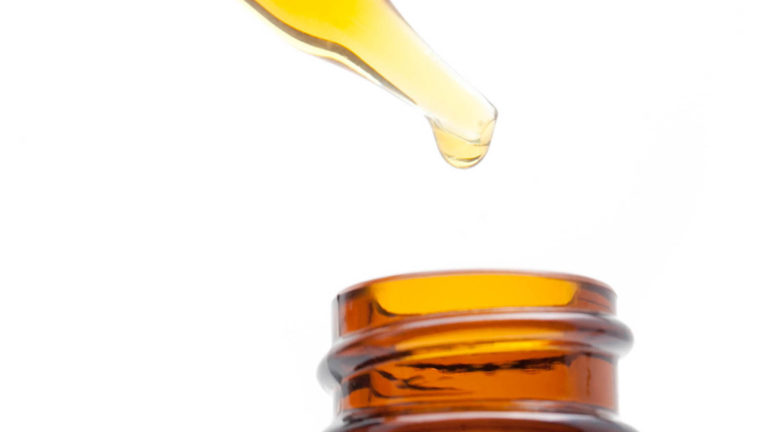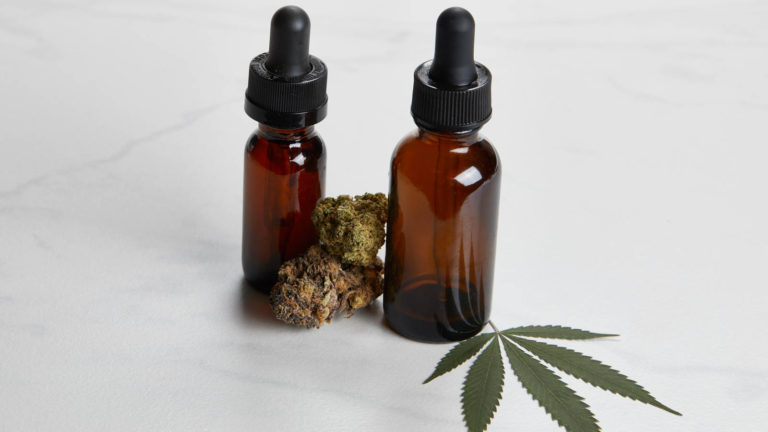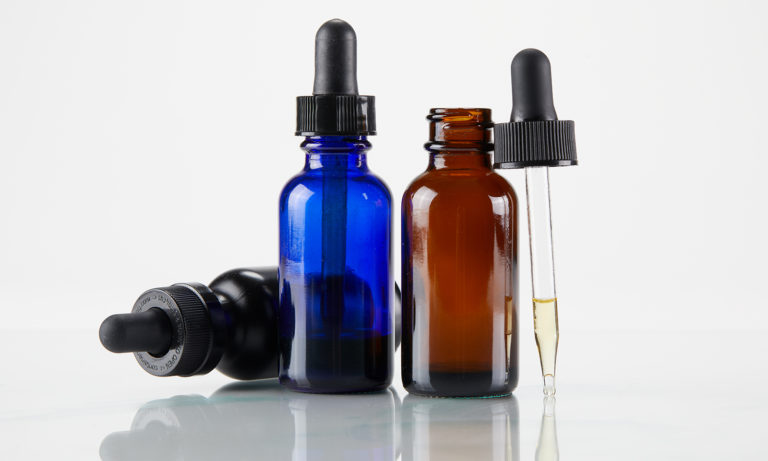Hemp and cannabidiol products derived from industrial hemp with 0.3% THC or less are legal in Vermont. There are no prohibitions in Vermont regarding the use of hemp-derived CBD as an additive in foods or beverages.
Medical cannabis was legalized in 2004 with the passing of Senate Bill 76. In 2018, cannabis was legalized for adult use when Gov. Phil Scott signed H.511 into law. The law allows individuals aged 21 or older up to one ounce of cannabis for personal use, but with stringent restrictions. H.511 did not make provision for the sale of cannabis; however, this is currently in the process of changing.
Products derived from cannabis, such as cannabis-derived from CBD, can currently be purchased by registered medical patients from authorized dispensaries.
What is CBD?
CBD is a non-intoxicating cannabinoid found in cannabis and the second-most prominent in the plant after THC, which is mostly responsible for producing an intoxicating high. CBD can be sourced either from marijuana or hemp plants and has a wide range of potential therapeutic benefits.
 Photo by: Gina Coleman/Weedmaps
Photo by: Gina Coleman/WeedmapsImage lightbox

To date, researchers have identified a number of potential applications linked to CBD, including anti-inflammatory, analgesic, anti-anxiety, and anti-seizure properties. Further, the chemical has shown promise in treating numerous health conditions, including seizure disorders, mood disorders such as depression, anxiety, and psychosis, chronic pain, and many more.
Most raw cannabis strains on the market today contain small amounts of CBD, especially compared with THC. But since the cannabinoid has gained considerable attention for its wide range of purported therapeutic benefits, more high-CBD strains have recently been cultivated.
Why is CBD sometimes illegal?
All types of cannabis, including hemp strains that don't produce enough THC to cause intoxication, were considered illegal under the Federal Controlled Substances Act of 1970. The law categorized all cannabis as Schedule 1, which defined the plant as a highly addictive substance with a high potential for abuse and no accepted medical use.
The 2018 Farm Bill re-classified hemp as an agricultural commodity and made its cultivation federally legal. Further, the act removed some forms of cannabis from Schedule 1 status by creating a legal distinction between hemp and marijuana. Hemp is cannabis with less than 0.3% THC, and marijuana refers to cannabis with more than 0.3% THC. This distinction in federal law effectively legalized CBD that is derived from cannabis with less than 0.3% THC, as long as it has been cultivated according to federal and state regulations.
The 2018 Farm Bill legislation does not mean that CBD derived from hemp is universally legal throughout the United States. According to the Farm Bill, the Food and Drug Administration (FDA) has the power to regulate CBD product labeling, including therapeutic claims and the use of CBD as a food additive.
The FDA has declared that even hemp-derived CBD may not legally be added to food and beverages, or marketed as a dietary supplement. Although the organization has begun to re-evaluate some of its stances on legal CBD products, the FDA has not revised its regulations. The agency also has been strict in its position against any labeling that could be perceived as a medical claim about CBD.
In addition to the federal regulation of CBD, the Farm Bill also gave states the option to regulate and prohibit the cultivation and commerce of CBD. States may regulate CBD in food, beverages, dietary supplements, and cosmetic products independently, even before the FDA finalizes its policies.
Vermont CBD laws
The cultivation, processing, and commerce of hemp and hemp-related products are legal in Vermont under 6 V.S.A., chapter 34. The state's industrial hemp program is overseen by the State of Vermont Agency of Agriculture, Food, and Markets. Industrial hemp is defined as all parts of the Cannabis sativa L. plant, whether growing or not, with a delta-9 tetrahydrocannabinol concentration of no more than 0.3 percent on a dry weight basis.
According to the Vermont hemp program rules, CBD products derived from hemp that is grown or processed in Vermont must conform with labeling expectations. Labels must include:
- The name and mailing address of the product manufacturer
- Manufacturing date, product expiration date, and process lot number
- A clear statement that the product contains ingredients that are derived from hemp
- A list of all of the ingredients included in the product, in descending order of prominence
- The quantity of the content (either in weight, measure, or numerical count)
- The amount of any cannabinoid contained in the product, including CBD, by serving size
- A statement that the product contains THC (if applicable)
- Manufacturing date, expiration date, and process lot number
All hemp or hemp-infused products produced in the State of Vermont must be traceable by their label.
Vermont has not prohibited the use of CBD as an additive to foods or beverages. CBD in food or drinks intended for immediate consumption, is, however, subject to Vermont meals tax.
CBD derived from cannabis is legal for both medicinal and recreational purposes.
 Photo by: Gina Coleman/Weedmaps
Photo by: Gina Coleman/WeedmapsImage lightbox

Medical cannabis was legalized in 2004 with the passing of Senate Bill 76. Patients with medical marijuana cards can purchase CBD derived from cannabis from authorized dispensaries.
In 2018, cannabis was legalized for adult use when Gov. Phil Scott signed H.511 into law.
H.511 did not make provision for the sale of cannabis; however, this is currently in the process of changing. S. 64, which was passed by the Senate in 2019, has created a framework for the commercial cannabis market and the creation of a Cannabis Control Board. This board will be responsible for regulating the manufacture and sale of products derived from cannabis, such as CBD. S.64 is likely to take effect in 2021.
Licensing requirements for CBD
In May of 2019, the State of Vermont Agency of Agriculture, Food, and Markets (AAFM) submitted their hemp program rules.
A person interested in registering as a hemp grower or processor in the Hemp Program must pay a $25 application fee and complete an application form with information disclosing all sites where hemp will be grown or processed.
Those convicted of felonies related to controlled substances are ineligible to register with the Hemp Program during a 10-year-period following the conviction date. unless the person lawfully registered with the Hemp Program prior to the date. Registrations expire on December 31st each year.
Registered growers must prove that their crop contains a concentration of 0.3 % THC or less. Growers must also prove that contaminant levels for pesticides, heavy metals, mycotoxins, bacterial, and fungal contaminants are below action limits outlined by the Vermont Agency of Agriculture, Food and Markets. Harvests that are not compliant with standards must be destroyed.
Vermont CBD possession limits
Currently, there are no possession limits in the state of Vermont for hemp-derived CBD.
While there are no specified possession limits for CBD derived from cannabis, there is a tiered system of penalties for those found in possession of more than one ounce of cannabis.
Where to buy CBD in Vermont
Vermont consumers can purchase hemp-derived CBD products from CBD-specific stores and health shops. When purchasing from a storefront, particularly if the store specializes in CBD, you can receive guidance from an employee. Explain what you're looking for, your reasons for consuming CBD, and they can point you in the right direction.
 Photo by: Gina Coleman/Weedmaps
Photo by: Gina Coleman/WeedmapsImage lightbox

Hemp-derived CBD can also be purchased online, usually through specific brands' websites. You can also find verified CBD brands on Weedmaps. Reputable brands will generally provide you with essential product details, including the form of the CBD (such as oil, capsules, topicals, tinctures, etc.), the quantity of CBD the product contains, the other chemicals or ingredients present in the product, and more.
Cannabis-derived CBD can only be purchased from a state dispensary with a medical marijuana card.
How to read CBD labels and packaging
The 2018 Farm Bill shifted the oversight of hemp and hemp-derived products from the U.S. Department of Justice (DOJ) to the U.S. Food and Drug Administration (FDA). The FDA does not presently allow CBD-infused food, drinks, or dietary supplements to be sold, and hasn't yet provided regulations for hemp-derived CBD products.
Still, the agency warns that regulations in flux still require companies to make legitimate claims on their labels. Buyers should nonetheless approach CBD products with caution. A CBD product should clearly state what kind of CBD is used.
Full-spectrum CBD oil means the extract contains cannabis-derived terpenes and trace amounts of cannabinoids such as THC. Broad-spectrum also includes other cannabis compounds but has had THC removed during the processing phase. CBD isolate is a pure crystalline powder containing only CBD.
Most reputable CBD producers typically include the following information on their CBD product labels:
- Amount of active CBD per serving.
- Supplement Fact panel, including other ingredients.
- Net weight.
- Manufacturer or distributor name.
- Suggested use.
- Full-spectrum, broad-spectrum, or isolate.
- Batch or date code.

